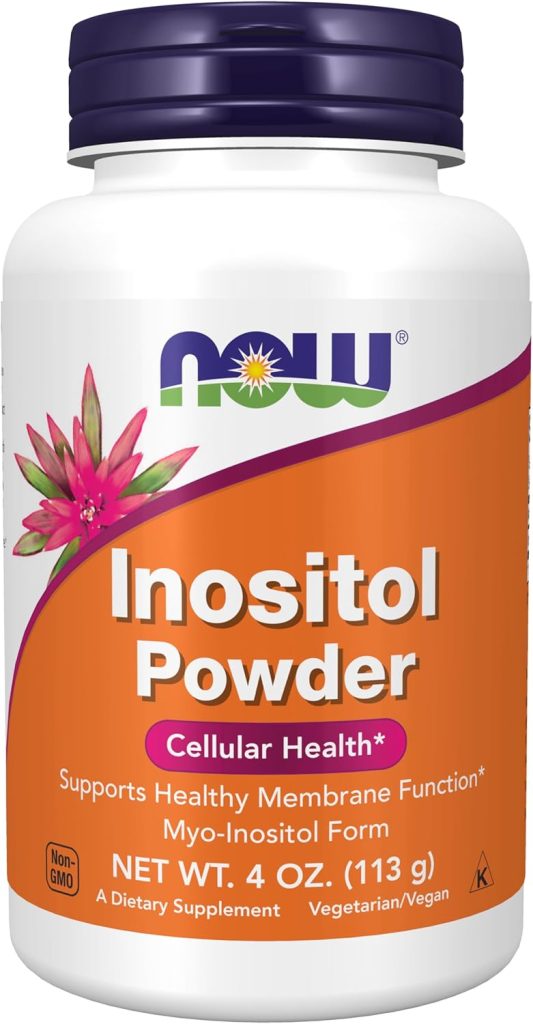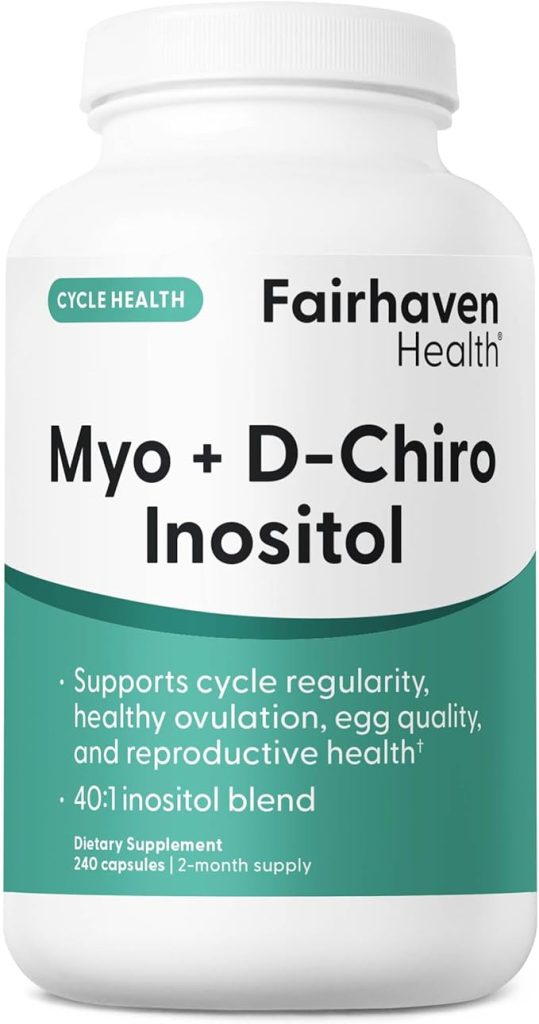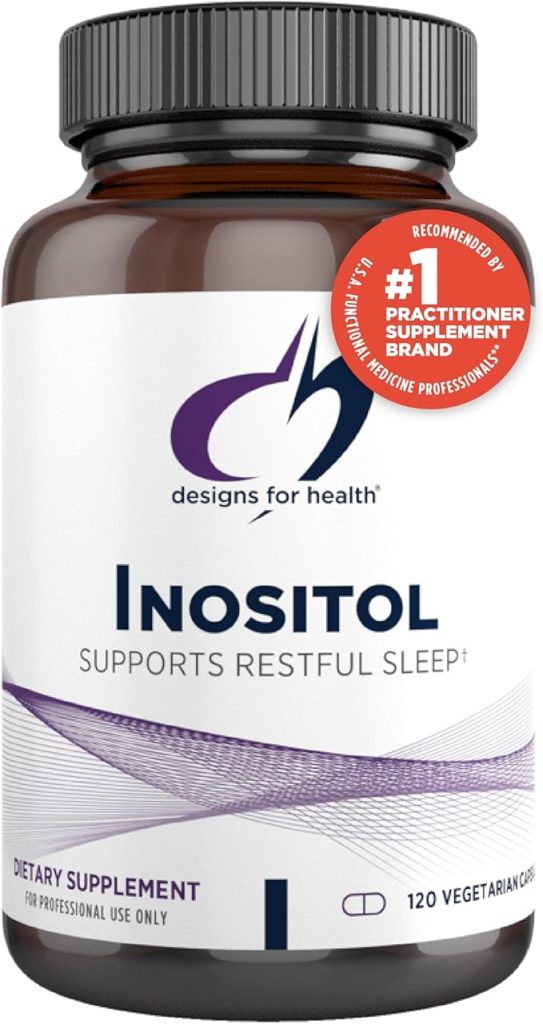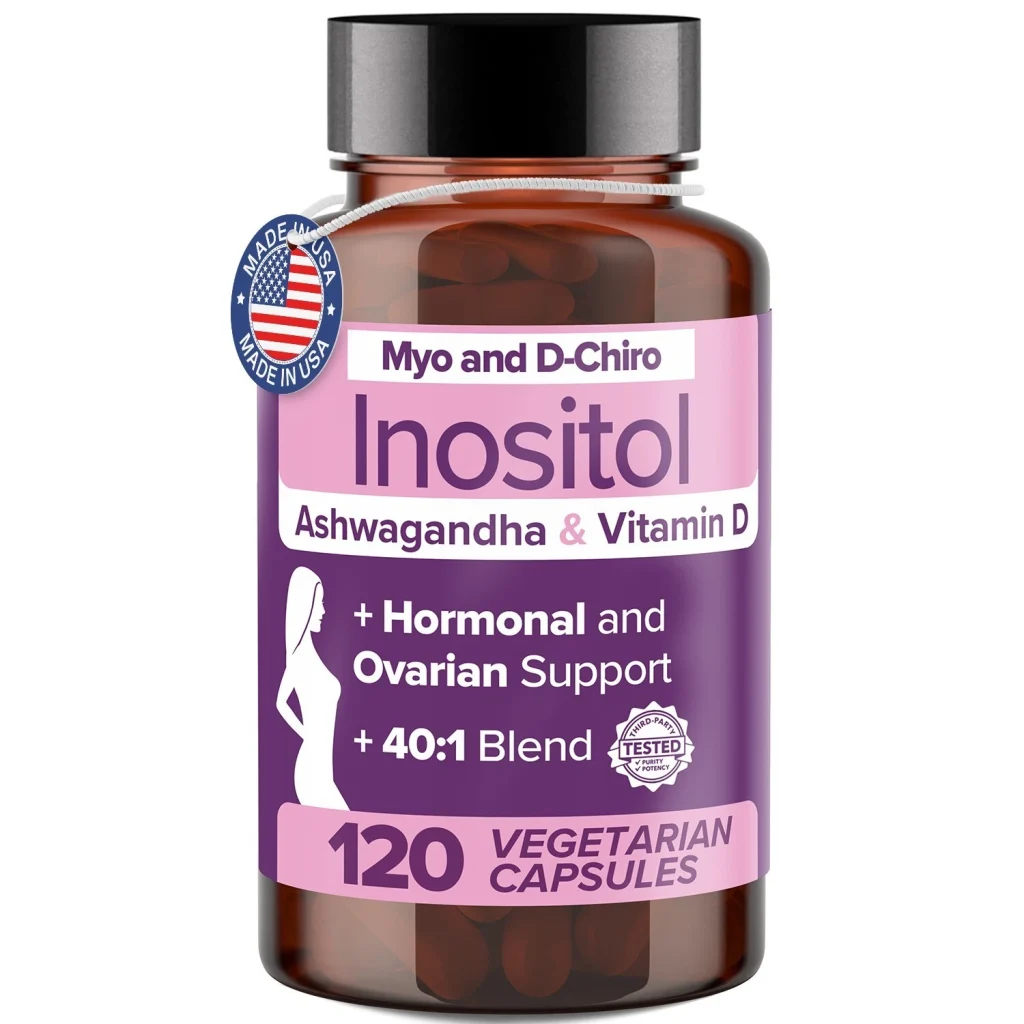What’s Inositol supplement?

Inositol is a sugar made in the body and found in foods. It can be found in nine forms. Myo-inositol and D-chiro-inositol are most common in supplements.
Inositol Supplement might balance certain chemicals in the body to help with mental conditions such as panic disorder, depression, and obsessive-compulsive disorder. It might also help insulin work better.
Though often referred to as vitamin B8, inositol is not a vitamin at all but rather a type of sugar with several important functions.
Inositol Supplement plays a structural role in your body as a major component of cell membranes.
It also influences the action of insulin, a hormone essential for blood sugar control. In addition, it affects chemical messengers in your brain, such as serotonin and dopamine.
It has been estimated that a typical diet in the US contains around 1 gram of inositol per day. Rich sources include grains, beans, nuts and fresh fruits and vegetables.
Health Benefits of Inositol
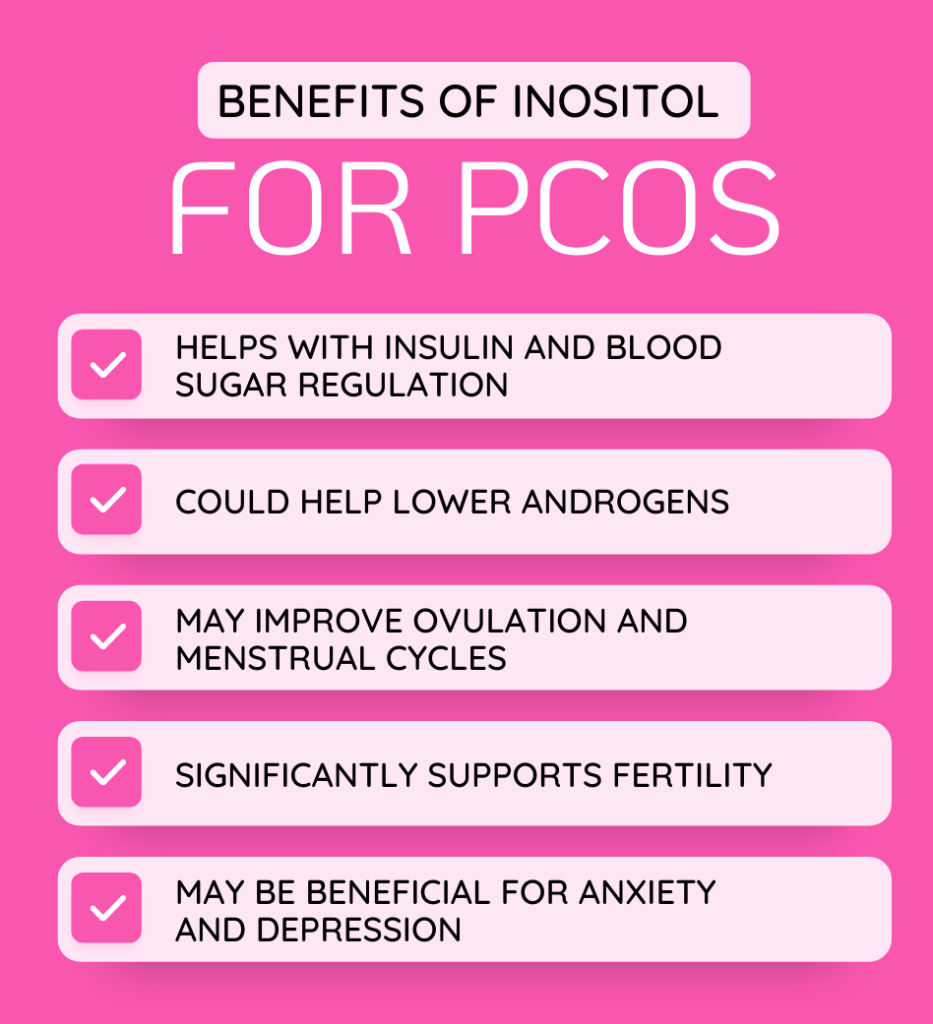
Although research is limited, inositol may offer health benefits, including improving symptoms of bipolar disorder, type 2 diabetes, infertility, mental health conditions, and polycystic ovary syndrome (PCOS). Inositol is a compound similar to glucose (sugar) found in many foods. You can also take it as a supplement.
Inositol Supplement plays an important role in helping cells in your body make cell membranes and respond to messages in their environment. It also helps with insulin function. Insulin is a hormone that regulates blood glucose in your body.
1. May Reduce Symptoms of Mental Health Conditions
Inositol Supplement may be beneficial in improving symptoms of some mental health conditions. Small studies have also shown inositol to help reduce symptoms of conditions like:
- Anxiety: A condition characterized by excessive fear or worry
- Bipolar disorder: A chronic mood disorder with symptoms that range from emotional highs (mania/hypomania) to extreme lows (depression)
- Depression: A condition characterized by feelings of sadness and hopelessness, as well as a loss of interest in things you used to enjoy
- Eating disorders: Conditions characterized by continuous, severe eating disturbances and distressing thoughts and emotions about food
- Obsessive-compulsive disorder (OCD): A condition characterized by unwanted and intrusive thoughts or images (obsessions) and repetitive behaviors and actions (compulsions)
- Panic disorder: A condition characterized by repeated, unexpected panic attacks and worry about the next attack
Myo-inositol is a form of inositol that may affect mood levels in the brain. It might result in fewer side effects than other medications used to treat mood disorders like depression, anxiety, and bipolar disorder.
2. Reduces Symptoms of PCOS
Research shows that inositol can be a safe and effective treatment option for people with PCOS.
PCOS symptoms include:
- Acne
- Extra hair growth on your face, chest, stomach, or thighs
- Infertility
- Irregular menstrual periods
- Pelvic pain
- Weight gain
There is no cure for PCOS, but treatment can reduce symptoms. Treatment might include lifestyle changes, medications, and infertility treatments if you’re trying to get pregnant.
3. May Reduce Symptoms of Metabolic Syndrome
PCOS can increase your risk of developing metabolic syndrome.
Metabolic syndrome is a group of medical conditions that increase your risk for diseases such as heart disease, stroke, and type 2 diabetes.
Metabolic syndrome includes at least three of the following conditions:
- Blood pressure of at least 130/85 millimeters of mercury (mmHg)
- Fasting blood sugar above 100 milligrams per deciliter (mg/dL)
- Fasting triglycerides (a type of fat found in the blood) above 150 mg/dL
- High-density lipoprotein (HDL) cholesterol less than 40 mg/dL for men or 50 mg/dL for women
- Large waist circumference (excess adipose tissue, or body fat, in the abdominal region)
Inositol may help reduce symptoms and conditions associated with metabolic syndrome.
4. Improves Type 2 Diabetes Symptoms
Inositol may be beneficial for people who have type 2 diabetes.
For example, in one small study, participants with type 2 diabetes took an inositol supplement twice daily for three months. The results showed that their fasting blood sugar levels and their hemoglobin A1C levels (average blood sugar levels over three months) decreased significantly over those three months. The participants didn’t report any side effects.
5. Boosts Fertility
Inositol can help improve fertility by inducing ovulation. Ovulation occurs when the egg moves from an ovary to a fallopian tube in preparation for fertilization and pregnancy. This is when people with ovaries are the most fertile.
Inositol Supplement might also benefit people who have infertility caused by low sperm count. Research shows that inositol can improve sperm motility (how efficiently sperm moves) and function, which can improve fertility.
Good Sources of Inositol
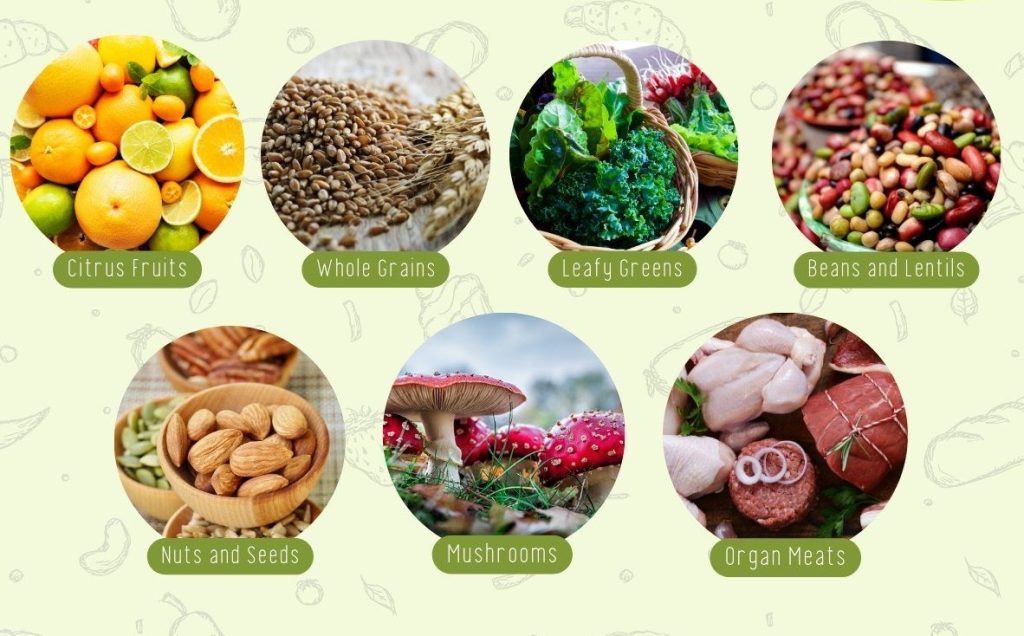
Whole Grains
Whole grains, including brown rice, oatmeal, and whole wheat bread, are not only delicious but are also brimming with inositol. Consuming these complex carbohydrates provides your body with a substantial dose of inositol and a spectrum of other beneficial nutrients such as fiber, vitamins, and minerals that contribute to a well-rounded diet.
Citrus Fruits
Citrus fruits are a treasure trove of inositol. From tangy oranges to juicy grapefruits and zesty lemons, and these fruits provide a refreshing, vibrant, and flavorsome avenue to increase your inositol intake. They also offer a host of other health benefits due to their high vitamin C content, aiding in immune system support and skin health.
Beans and Lentils
Renowned for their high inositol content, beans and lentils are a nutritional powerhouse. From kidney beans and chickpeas to lentils, these legumes are also packed with protein and fiber, making them a hearty and wholesome addition to any meal.
Nuts and Seeds
Snack your way to better health with inositol-rich nuts and seeds. Almonds, walnuts, peanuts, sunflower seeds, and flaxseeds all boast a high inositol content. Whether enjoyed as a quick on-the-go snack, sprinkled on salads, mixed into oatmeal or swirled into yogurt, they offer a delicious and versatile way to supplement your inositol intake.
Leafy Greens
Green, leafy vegetables like spinach and Swiss chard offer a good source of inositol. But their benefits don’t stop there. These nutrient-dense superfoods are packed with vitamins, minerals, and fiber, contributing to overall health and wellness while providing a boost of inositol.
Organ Meats
While they may not be everyone’s first choice, organ meats such as liver and kidneys are packed with inositol. Those who appreciate these nutrient-dense foods can serve as an incredibly potent source of this beneficial nutrient, along with a range of other vitamins and minerals.
Mushrooms
A favorite in many cuisines, mushrooms, particularly shiitake mushrooms, are a good source of inositol. Easily incorporated into a multitude of dishes, from stir-fries and soups to salads and omelets, they can effortlessly increase the inositol content of your meals.
Adopting a balanced diet inclusive of these inositol-rich foods can significantly elevate your health, offering benefits ranging from improved cardiovascular wellness to enhanced hair vitality. However, remember that these foods, as powerful as they are for promoting health, should be part of a diverse diet and balanced lifestyle.
Inositol is in many foods, including:
- Fresh fruits like cantaloupe and citrus fruits (except lemons)
- Grains like wheat bran, brown rice, and oats
- Nuts like almonds, walnuts, and Brazil nuts
- Peas and beans
How To Take Inositol Supplement
Inositol Supplement can be taken in two different supplements:
- D-chiro-inositol (DCI)
- Myo-inositol (MI)
There is no recommended dosage for inositol. The amount of inositol and the specific type of supplement may depend on your health condition and current medications.
The ratio of MI to DCI also varies, and more research is needed to determine effective treatment options. For example, a ratio with higher levels of DCI can negatively affect oocytes (immature eggs), which can decrease fertility. Talk to your healthcare provider if you’re interested in an inositol supplement.
Is Inositol Supplement Safe?
Inositol Supplememt is generally safe for most people, but more research is needed to determine safety for different populations, including people who are pregnant or breastfeeding.
Although uncommon, you may experience gastrointestinal side effects such as:
These side effects are more common with doses of 12 grams (g) per day or higher.
Dietary supplements are minimally regulated by the FDA and may or may not be suitable for you. The effects of supplements vary from person to person and depend on many variables, including type, dosage, frequency of use, and interactions with current medications.
A Quick Review of Inositol Supplement
Inositol is a nutrient found in many foods. It assists with cell structure and insulin regulation in the body. Research has shown that taking an inositol supplement may be beneficial for some conditions. For example, people with conditions like PCOS, bipolar disorder, and type 2 diabetes may see improvement in their symptoms when taking an inositol supplement as part of a treatment plan. It’s generally safe and well-tolerated.
The main brand Inositol Supplement in the market:
